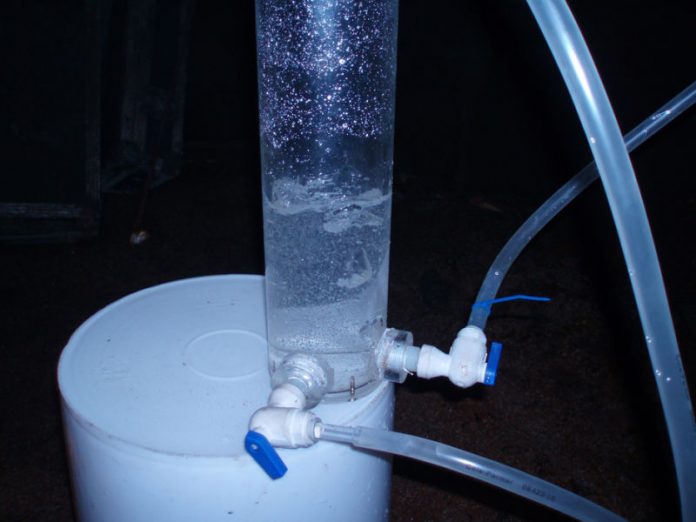Researchers have uncovered water that dates back a whopping two billion years. It’s the oldest water ever discovered on Earth, and it could broaden our understanding of how life emerged on our planet—and possibly elsewhere.
The University of Toronto scientists found the primordial water at a depth of 1.5 miles miles (2.4 km) in Kidd Creek Mine, which is located in Timmins, Ontario. The team, co-led by geoscientist Oliver Warr, explained their findings at an American Geophysical Union meeting held earlier this week in San Francisco. These findings are set to appear in a future edition of the journal Nature.
In order to date water, researchers have to look at the accumulation of gases in the sample. This particular bucketful of ancient water contained helium, argon, neon, krypton and xenon. Calculating how much of these elements accumulated over the immense gulfs of time that this water has existed helped researchers identify its age.
The water has been described as being 8 times saltier than sea water. “It won’t kill you if you drank it, but it would taste absolutely disgusting.”
Much can be learned from such a discovery. According to postdoctoral researcher Oliver Warr, “If water has been down there for up to two billion years, it can tell us something about the atmosphere at the time, or the state of the Earth, which previously we’ve not been able to get much insight into.” And not only can we learn about the conditions in which the water may have existed billions of years ago, but there’s also a chance it may actually contain ancient life
“That could have great ramifications as to how life might exist at these kinds of depths, how it might survive,” Warr said. “It could start paving the way for understanding life on other planets as well.” Earlier this year, scientists discovered 3.7 billion year old fossils in Greenland, which would make it entirely possible for this 2 billion-year-old water to contain traces of life, if not entire organisms.
The extreme conditions for billions of years ago could give some important insight into how life began on our planet, or even how it might exist on the harsh conditions of planets like Mars.















